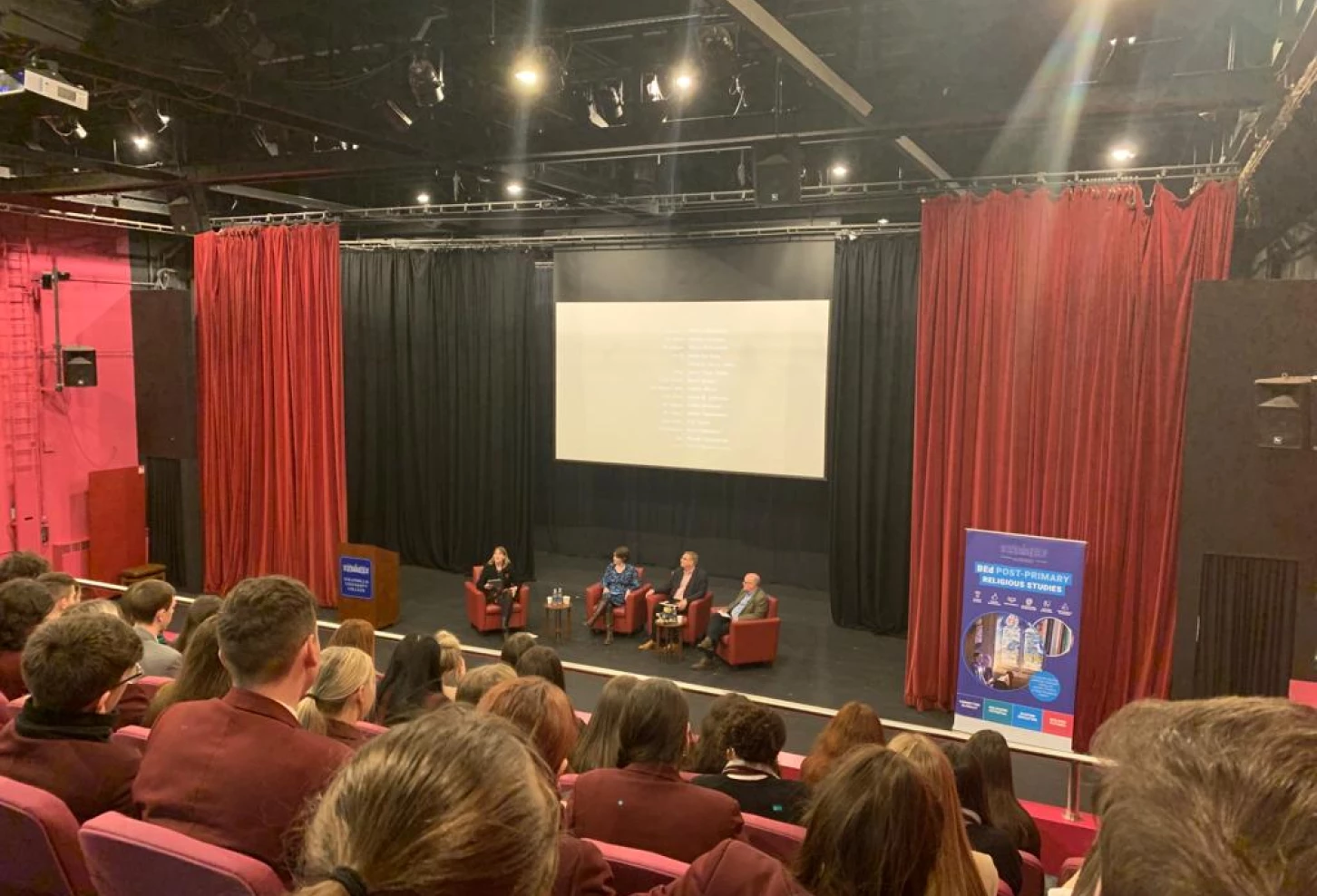There are few opportunities and public forums to explore big questions around developments in science and medicine, taking time to consider the ethical and social implications. Union College’s recent bioethics events created time and space for just such reflection.
The series of events began with a screening of the film documentary ‘Future Baby’, giving an insight into the global fertility industry and exploring the question of whether there is a right to have a child. The film was followed by a panel discussion with Matt James (St. Mary’s University, Twickenham) and Dr Calum MacKellar (Scottish Council on Human Bioethics), who both answered a range of questions posed by the audience.
The following day Union College partnered with Stranmillis University College to host another two film events specifically for Religious Studies AS and A-level pupils and their teachers. Over 400 pupils, along with 32 teachers, came to the Drama Theatre at Stranmillis for a morning or afternoon screening of the film, ‘My Sister’s Keeper’. The film opens up ethical issues around pre-implantation genetic diagnosis (PGD) and saviour siblings, as well as prompting further reflections on issues at the beginning and end of life. Both screenings were followed by a panel discussion and Q&A, with pupils posing some very thoughtful and insightful questions. A lunchtime consultation with the teachers provided the opportunity to consider how the teaching of bioethics in the classroom could be further resourced. The feedback from schools and pupils was very positive: ‘A fantastic day which our pupils very much enjoyed. Insightful & informative. Great support to our pupils as they prepare for their exams as well.’
The final event was a Saturday morning conference, ‘Future Family’, exploring developments in assisted reproductive technologies, the ethical issues raised and the impact on our understanding of children and family. There was also an opportunity to consider some of the pastoral and practical considerations around childlessness and infertility. It was encouraging to see ministry students, RE teachers, church leaders, medics, scientists and others wrestle with these important issues, and reflect together on the present and future implications of such developments for church and society. In the feedback to the Saturday conference, 96% of respondents strongly agreed that there needs to be further engagement between science and theology on these issues.
We are grateful to the ‘Science for Seminaries’ grant that enabled us to put on these events, and we look forward to continuing to create the public forums that encourage considered and constructive conversations on these important topics.

